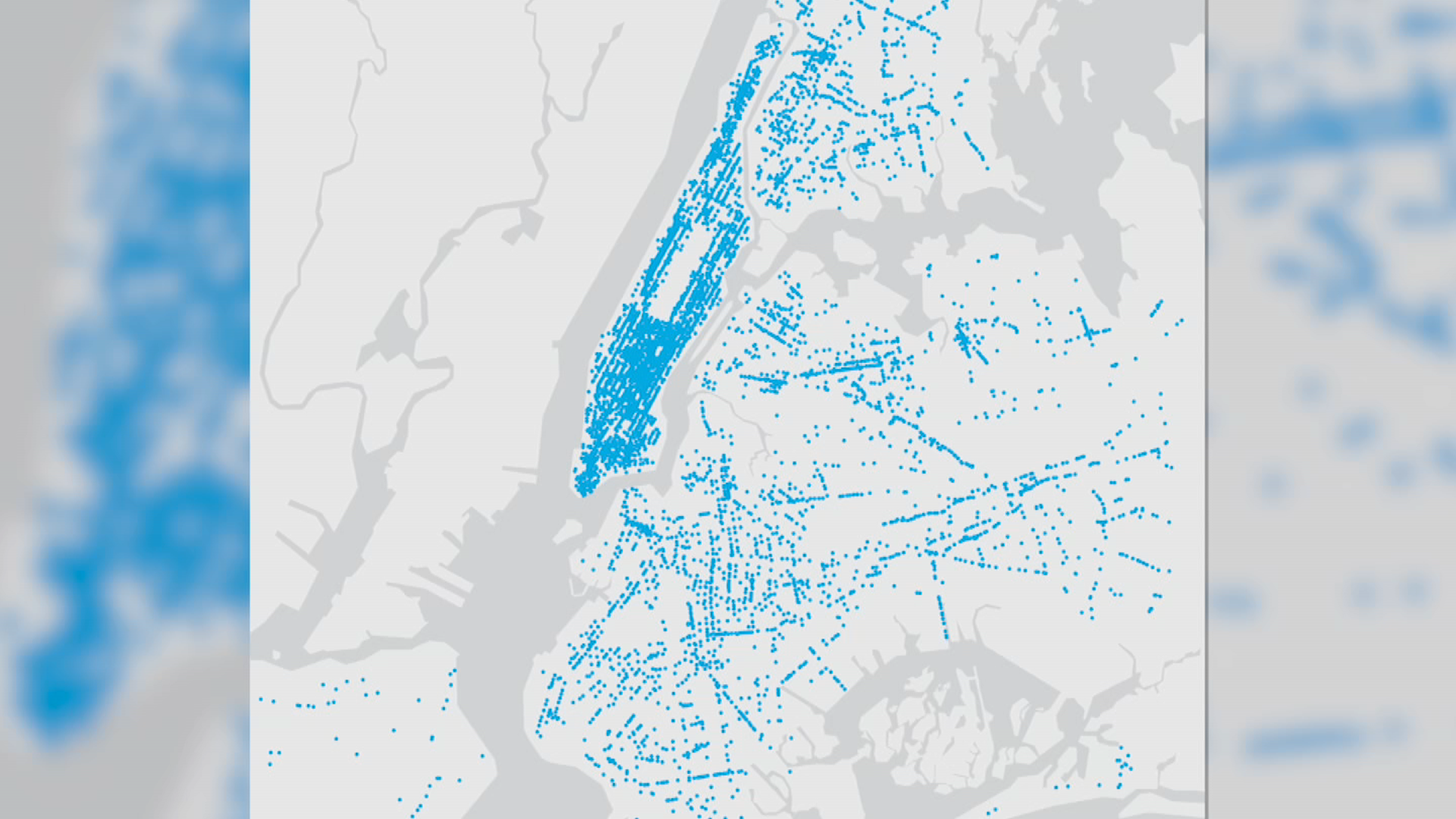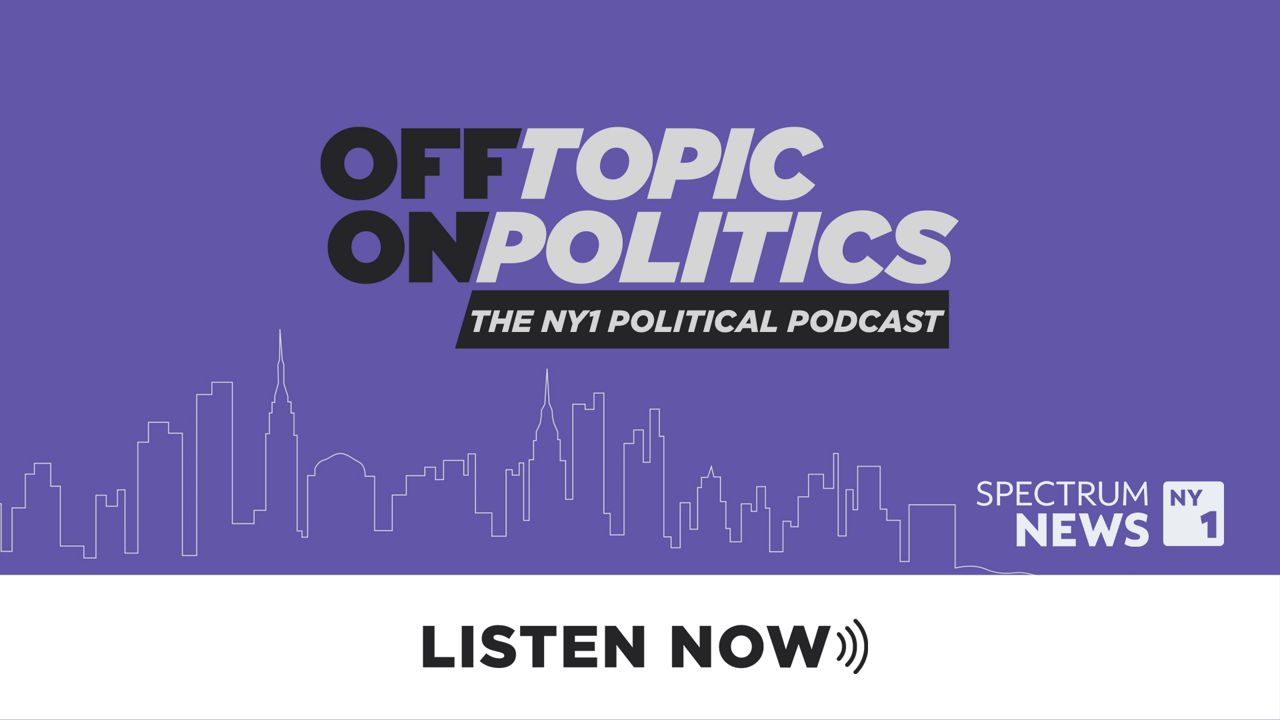It was supposed to be free Wi-Fi for all: a public-private partnership between the Bill de Blasio administration and CityBridge, a technology company which set out to replace the city's old payphones with Wi-Fi kiosks.
Today, there are 1,815 LinkNYCs scattered across the city. Users can make free calls, charge devices, and browse city websites.

(Where the LinkNYC kiosks are located in New York City. Gloria Pazmino/NY1.)
But five years since it signed the agreement, LinkNYC has failed to deliver the revenue it promised. When first announced, CityBridge said it would make money by selling advertising on LinkNYC screens, but the numbers have come up short.
Lee Rowland, the policy director at the New York Civil Liberties Union, said the organization has concerns about how the company is mining user data.
"We need to be really cautious about how they're making money off of us," Rowland said. "When people interact with LinkNYC, they aren't handing over money; they're handing over their data."
According to the agreement, 7,500 kiosks are expected to be installed by 2025. When the city first announced LinkNYC, it promised $500 million in revenue in the first 12 years. So far, the city has collected only $90 million.
Questions about the company's profitability, and exactly how it's using technology and data, are also increasing. Last month, the NYPD released kiosk video of a man vandalizing a tower, raising concerns about when the cameras are on. The company says there are two security cameras on each kiosk, and the footage is stored for only seven days unless it's needed for an investigation.
In recent months, a group of activists under the name "RethinkLinkNYC" have been active on social media. They have taped flyers on machines around the city, warning users about the possibility of being recorded without their consent.
Even supporters of the technology say the company has been slow to deliver what it promised.
"I'd like to see the rollout be a lot more aggressive," Manhattan City Councilman Ben Kallos said. "Even though we've read that it's losing money, the good news is they are big enough, they're resilient enough, to keep moving forward with this."
A disclaimer on the company's website says it does not sell personal information or share data with third parties for their use. But as long as they have user consent, personal information, such as an email address or name, could be shared.
------
Looking for an easy way to learn about the issues affecting New York City?
Listen to our "Off Topic/On Politics" podcast: Apple Podcasts | Google Play | Spotify | iHeartRadio | Stitcher | RSS








